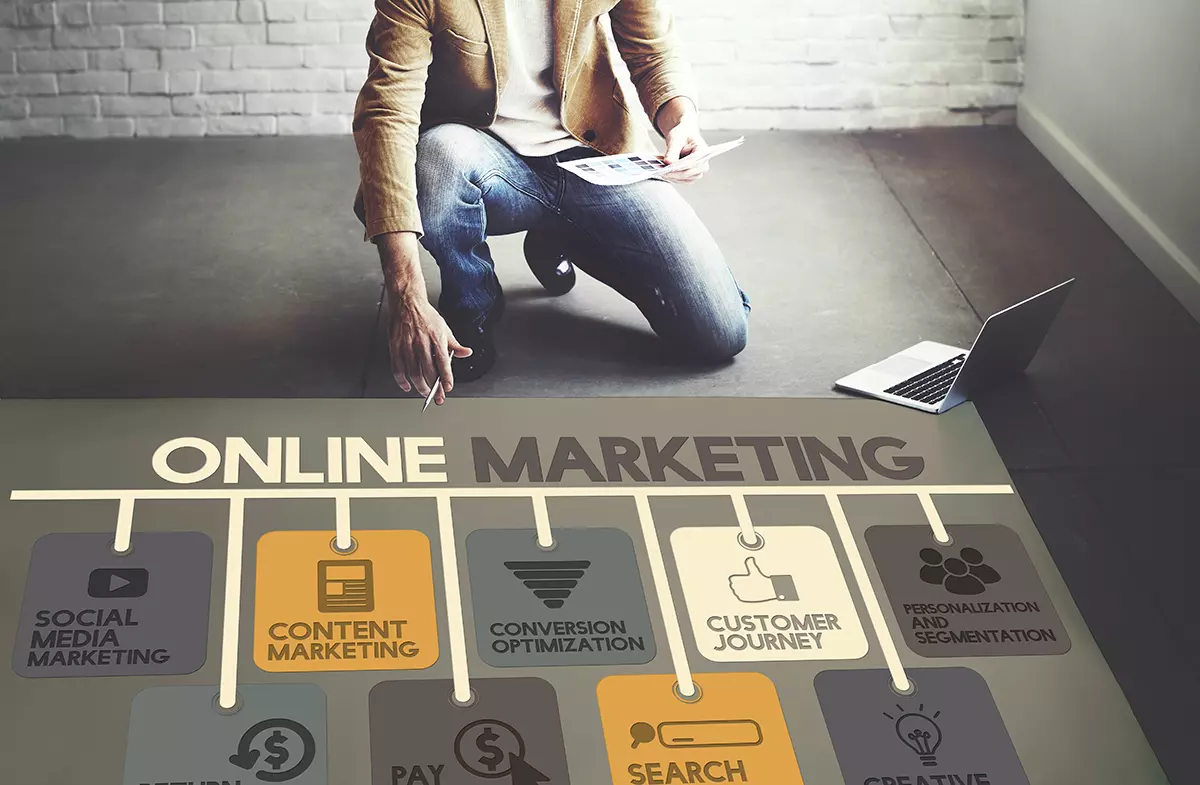In today’s competitive landscape, small and medium-sized enterprises (SMEs) can no longer rely solely on word-of-mouth or walk-in customers to grow. If your business isn’t online, or if your digital presence is weak, you’re missing out on valuable opportunities. But navigating the digital marketing world can feel overwhelming, especially with all the jargon being thrown around.
That’s why we’ve created this guide. Below are the top 10 digital marketing terms every business owner should know. These are the building blocks of any successful online strategy and understanding them will help you make better marketing decisions, whether you’re managing it yourself or working with a service provider.
1. SEO (Search Engine Optimization)
What it means: SEO is the process of optimizing your website to improve its visibility on search engines like Google.
Why it matters: When someone searches for a product or service you offer, you want your business to show up at the top. Good SEO practices help more people discover your business without paying for ads.
Example: If you run a bakery in Manila, SEO can help your website appear when someone searches “best chocolate cake in Manila.”
2. SEM (Search Engine Marketing)
What it means: SEM is a form of digital marketing that involves paid advertisements on search engines.
Why it matters: SEM helps your business appear at the top of search results immediately, especially useful for new products, promotions, or competitive markets.
Example: A pet supply store could run a Google Ads campaign for “affordable dog food delivery” to attract pet owners nearby.
3. PPC (Pay-Per-Click)
What it means: PPC is a type of online advertising where you pay only when someone clicks on your ad.
Why it matters: It’s cost-effective because you’re only charged when someone shows interest by clicking. It’s widely used on platforms like Google Ads and Facebook.
Example: You pay ₱10 each time someone clicks your ad for a weekend sale, driving traffic to your online store.
4. CTR (Click-Through Rate)
What it means: CTR is the percentage of people who click your ad or link after seeing it.
Why it matters: A higher CTR means your messaging is working and attracting attention. It’s a key metric for evaluating your ad performance.
Example: If 1,000 people see your Facebook ad and 50 click it, your CTR is 5%.
5. Conversion Rate
What it means: This measures how many visitors to your website or ad actually take the action you want, like making a purchase or signing up for a newsletter.
Why it matters: It tells you whether your digital marketing efforts are turning interest into results.
Example: If 100 people visit your product page and 10 make a purchase, your conversion rate is 10%.
6. Landing Page
What it means: A landing page is a standalone webpage created for a specific marketing campaign.
Why it matters: It focuses on one goal, like getting someone to sign up, book an appointment, or buy now. A well-designed landing page can dramatically boost conversions.
Example: You launch a promo for your coffee shop’s loyalty card. The landing page highlights the benefits and has a signup form.
7. Email Marketing
What it means: Sending targeted emails to your customer list to build relationships, promote offers, or drive repeat business.
Why it matters: Email marketing remains one of the most effective ways to engage existing customers and bring them back.
Example: A spa sends monthly emails featuring exclusive discounts for loyal clients and updates on new treatments.
8. Social Media Marketing (SMM)
What it means: Promoting your business through platforms like Facebook, Instagram, and TikTok.
Why it matters: Your customers spend hours on social media. A strong presence helps build brand awareness, engage followers, and drive traffic to your store or website.
Example: A clothing boutique shares new arrivals on Instagram Stories with a direct link to shop online.
9. Analytics
What it means: Tools like Google Analytics or Meta Insights that help you track how users interact with your website, ads, or social pages.
Why it matters: You can’t improve what you don’t measure. Analytics show what’s working, what’s not, and where to invest your time and budget.
Example: You notice that most visitors leave your website from the product page. With that insight, you can update the layout or pricing info to increase sales.
10. Content Marketing
What it means: Creating useful, engaging content such as blog posts, videos, or infographics that attracts and retains customers.
Why it matters: Quality content builds trust, improves SEO, and keeps your brand top of mind.
Example: A dental clinic posts tips on oral hygiene and answers common questions, helping build trust with potential patients online.
You don’t need to become a digital marketing guru overnight but knowing the basics helps you make smarter decisions and work more effectively with partners and agencies. As more SMEs embrace digital tools in 2025, those who understand the language of online marketing will have a major advantage.
Transform your business today
By proactively avoiding these seven critical marketing mistakes, SMEs in 2025 can significantly enhance their marketing effectiveness, optimize their limited resources, and position themselves for sustainable growth in an increasingly competitive marketplace. Embracing data-driven strategies, prioritizing the mobile experience, creating valuable content, engaging on social media, optimizing for search engines, personalizing their efforts, and continuously measuring and adapting will be key to their marketing success.
Consider hiring a creative agency to do the heavy lifting for you! A good creative agency can help you achieve your marketing and branding goals and take your business to the next level.
We are Ethos, a creative agency where data fuels imagination. We started in 2016 as a spark – a small team with a big vision to help businesses thrive. Today, we’re a team of passionate locals, each bringing a unique blend of expertise and enthusiasm to the table. We don’t just manage campaigns, we use digital data to build campaigns that resonate with your audience and deliver measurable results. We’re constantly learning, growing, and adapting, fueled by the desire to push boundaries and redefine what’s possible in the ever-evolving world of digital marketing, not just for ourselves, but for the stories we help you tell.
Let’s unlock the power of data to tell your brand story in a way that truly connects!




